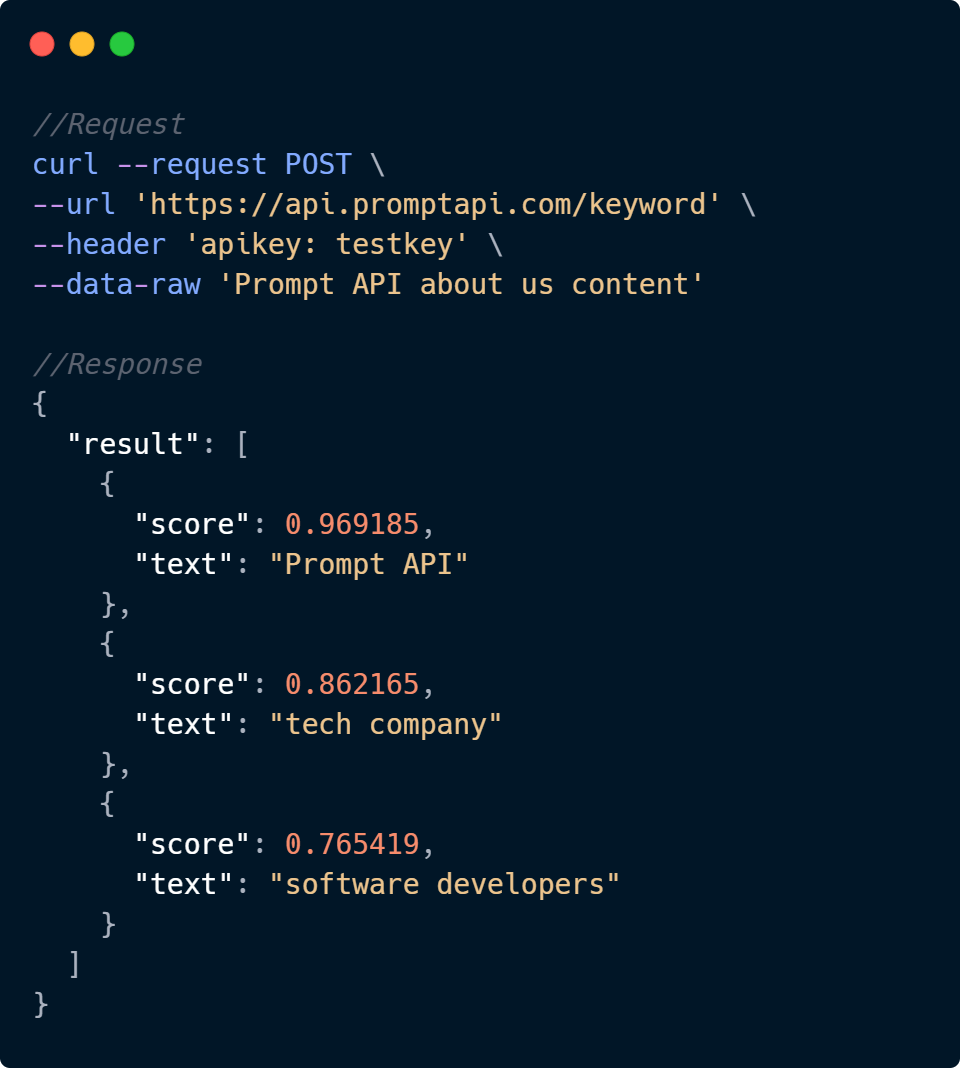
Keyword extraction recognizes important terms in a text that best describe the subject of a document. Whether you are a startup or a large corporation working in retail, media or e-commerce Keyword Extraction API helps you identify words to concentrate on search engine optimization or auto tag the corresponding page.
What is Keyword Extraction?
Key phrases, key terms, key segments or just keywords are the terminology which is used for defining the terms that represent the most relevant information contained in the document. Although the terminology is different, function is the same: characterization of the topic discussed in a document. The task of keyword extraction is an important problem in Text Mining, Information Retrieval and Natural Language Processing.
Whether you are building a content site or just wish to tag some unstructured text data, this API will provide all the necessary tools to get you started.
How it works
Take the following news passage from CNN, as an example:
Nothing prepared them for moving into the former country estate of the Guinness family, with a 32-seat cinema, two gourmet dining rooms, a spa, wine-tasting tunnels and 83 guest rooms.
It was transformed into a luxury hotel in 1939; past guests have included US presidents and celebrities such as Barbra Streisand and Brad Pitt. Pierce Brosnan, who shot an episode of the TV series "Remington Steele" at Ashford, returned to marry Keely Shaye Smith here in 2001.
Both Smith and Jamieson, who is in charge of guest services, were surprised -- and thrilled -- when general manager Niall Rochford asked them if they might consider moving in for a spell. They suspect it's because they complement each other as a team.
"She does everything so well on the inside and I have a lot of experience on the outside and on the grounds, so it was almost perfect yin and yang," says Smith. "We balance each other. So I have to believe that's one of the reasons they asked."
API will extract these keywords automatically:
Use cases for Keyword Extraction API
You can monitor your brand on social media and easily go over all the content generated by your users. By extracting keywords relevant to your brand you can filter features or areas of importance to invest in order to provide a unique experience. Gaining automatic insight from online users would definitely help your design user-centric product roadmaps.
Another user case for would be auto-tagging of internal documents. Keeping track of customer service notes could be tough. Doing it without automation would even be tougher. Instead of doing manual work to tag customer service tickets Keyword Extraction API provides you lightning fast responses to summarize the relevant data. By using auto-tagging your customer team can concentrate on more value added services.
Whether you want to generate a simple word cloud or gain valuable customer insight you do not need to learn natural language processing basics to understand what people really are talking about. Keyword Extraction API solves your problems in an elegant and scalable way while you can focus on your core value proposition.
Language Support
Keyword Extraction API supports these languages out of box. It will detect the language automatically, so you won't need to deal with language detection issues.
Supported languages:
- Chinese (Simplified)
- Dutch
- English
- French
- German
- Italian
- Japanese
- Korean
- Portuguese
- Russian
- Spanish
- Swedish